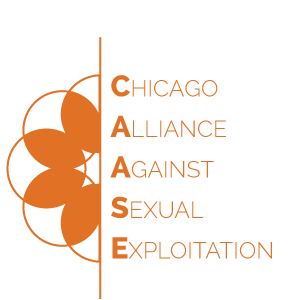TOO LITTLE, TOO LATE?
THE CPD'S RESPONSE TO SEX CRIMES
A Report Analyzing Crime Data from 2010-2019
Both law enforcement and the public claim that solving sex crimes is a top priority for police, yet there is a massive gulf between rhetoric and reality. CAASE’s report, Too Little Too Late? The CPD’s Response to Sex Crimes, analyzed publically available data from 2010-2019. We found that survivors who reported to the Chicago Police Department (CPD) faced grossly inadequate responses. Our findings align with the experiences of survivors and our legal staff who represent them.
View the report as a PDF
Key findings of the report:
- 80-90% of sexual harm reports made to CPD did not result in an arrest
- The mere 10-20% survivors who saw an arrest in their case had to wait weeks or months for their assailant to be detained (longer than victims of other violent crimes)
- Sex crimes often suffer lower arrest rates than other violent crimes
Key recommendations of the report:
- Chicago leadership account for our city’s sexual violence crisis and the failures of CPD
- City Council commit to addressing gender-violence through better funding and transparency, including
- The reallocation of 1 week of CPD funding to survivor services and prevention initiatives
- Improvements to CPD crime data collection and its public accessibility
- State lawmakers expand survivors’ options for justice and restoration outside the criminal justice system
According to the report, CPD is failing survivors. Not only are arrest rates for sex crimes very low, but the few survivors who see their assailant detained often waited longer for the arrest than victims of other violent crimes. Additionally, the number of reported rapes has continually risen in recent years, yet arrests aren’t keeping up. They’ve remained flat.
The report’s findings indicate that Chicago needs to greatly improve its criminal justice response to sex offenses and address sexual violence outside the criminal system because, according to the U.S. Department of Justice, the vast majority of survivors will never report to police. CAASE is calling upon Mayor Lori Lightfoot and all 50 aldermen to support survivors of gender-based violence by ensuring access to and funding for community services and prevention initiatives. We are also calling on state lawmakers to expand options for justice and restoration.
As long as there are laws that criminalize sexual violation, survivors who report should be able to count on a high-quality response from law enforcement but our efforts to end sexual harm must reach beyond police work and include well-supported strategies throughout our community.
We hope you will join us in pressing our city and state leaders to address gender-based violence. Be sure to follow @theCAASE on Twitter, Facebook, and Instagram to stay up to date on advocacy opportunities.
Are You a Survivor in Chicago?
CAASE will continue analyzing our city’s criminal justice response to sex crimes. In an upcoming report, we will specifically highlight the voices and stories of Black survivors— who are disproportionately impacted by sexual harm—and their lived experiences with Chicago’s criminal legal system. If you would like to add your voice to this report, please email our Community Engagement Manager, Anika Sterling Florez, at
asflorez@caase.org or call (773) 244-2230, ext. 201
Legal Support
If you are a survivor who’s had issues dealing with CPD in relation to a reported sexual offense and are interested in a free legal consultation, please email legal@caase.org or call us at 773-244-2230 x 204.


